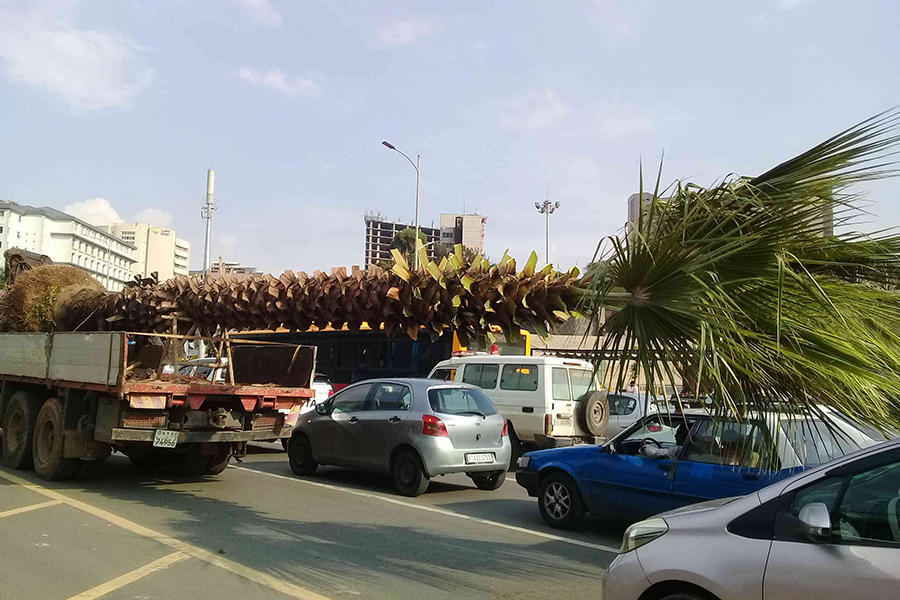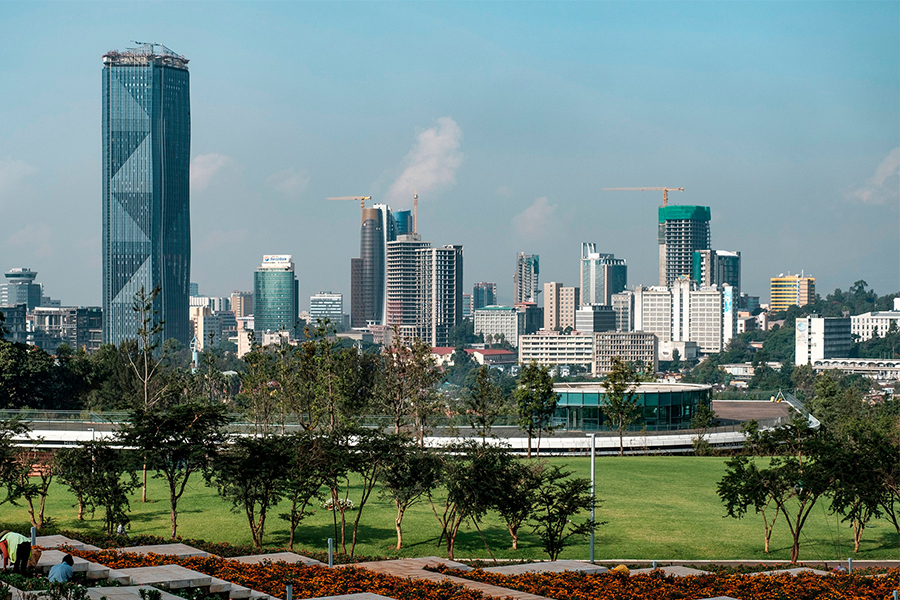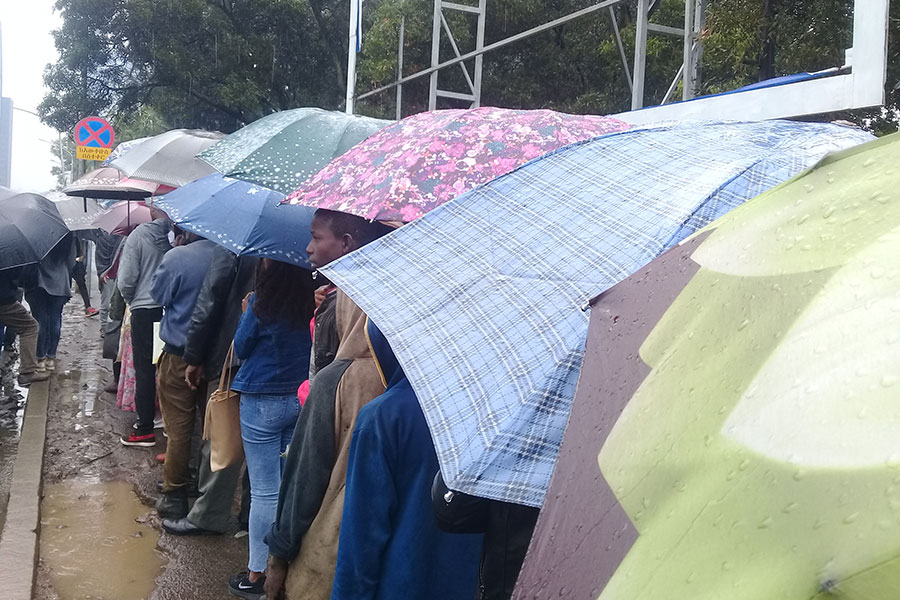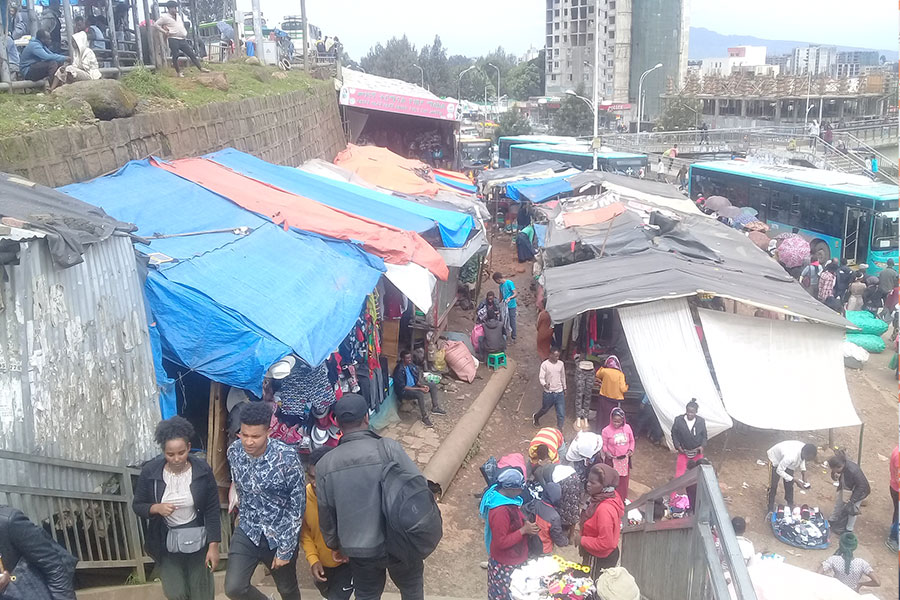
Fortune News | Aug 12,2023
Jimma City was abuzz from May 20 to 22, 2025, as it hosted a vibrant three-day celebration for World Bee Day, held alongside the Second International Forum on Sustainable Beekeeping. Themed “Bee Inspired by Nature to Nourish Us All,” this event was a collaborative effort by the Food and Agriculture Organization (FAO), the International Centre of Insect Physiology and Ecology (icipe), the United Nations Industrial Development Organization (UNIDO), the Ministry of Agriculture (MoA), and the Government of the Republic of Slovenia. The occasion provided a platform to highlight the vital role of bees in sustainable agriculture, biodiversity conservation, and global food security.
The forum attracted a diverse assembly of international and local participants. Attendees included representatives from United Nations agencies, governmental bodies, beekeeping associations, environmental Non-Governmental Organisations (NGOs), conservation groups, academic and research institutions, private sector entities, agribusinesses, youth initiatives, and local communities. Notable attendees included Adam Farah, Deputy Chairman of the Prosperity Party; delegates from the FAO; and senior officials from the Ministry of Agriculture. The celebration, featuring exhibitions, insightful panel discussions, presentations of research, and educational field visits, showcased the country’s rich beekeeping heritage and its strong commitment to pollinator protection.
Panel Discussion on International Cooperation to Protect Pollinators
A forum highlight was a panel of international experts, policymakers, scientists, and civil society leaders discussing global strategies for pollinator protection. The panel included Tadele Tefera (PhD) of icipe; Yurdi Yasmi, Director, NSP, FAO; Braulio Ferreira de Souza Dias from Brazil’s Ministry of Environment and Climate Change; Asegid Adane, Deputy Country Director for UNIDO; Ambassador Alejandro Estivill Castro, Ambassador of Mexico to Ethiopia and Permanent Observer to the African Union; Astrid Schomaker, Executive Secretary of the Convention on Biological Diversity; and Raquel Hilianova Soto Torres, Vice Minister of Peru’s Ministry of the Environment.
Tadele underscored icipe’s global leadership in pioneering pollinator-friendly agroecological approaches, such as integrated pest and pollinator management achieved through international collaboration. He emphasised that pollinators transcend national borders, serving all countries and continents, thus necessitating coordinated global efforts for their safeguarding.
Exhibition and Product Showcase
A diverse variety of honey and hive-based products, encompassing beeswax, cosmetics, and other value-added items, were showcased by enterprising beekeepers, seasoned experts, and innovators from Ethiopia, various African nations, Europe, the Americas, and Asia. Prominent among the exhibitors were young beekeepers participating in the Mass Youth Employment in Apiculture (MaYEA) and More Young Entrepreneurs in Silk and Honey (MOYESH) programmes. Key partners of icipe, Green Face and Ecopia PLC, and Apneic, also presented their products.
The dynamism of youth entrepreneurs, nurtured by icipe and the Mastercard Foundation, was particularly striking. Over 30 young beekeepers from the Amhara, Oromia, Tigray, Southwest Ethiopia, and South Ethiopia regional states exhibited top-quality table honey. Their offerings included organically certified honey from the Limmu, Wenago, and Alle districts, alongside products from the Meles Union in Tigray. Their vibrant displays captivated both national and international visitors, boosting their visibility and fostering crucial market connections.
The support from icipe and the Mastercard Foundation has been instrumental in transforming the livelihoods of thousands of young individuals through beekeeping and associated value chain enterprises. Yenenesh Debela from Wenago district, South Ethiopia region, and Girmay Tade from Wag Himra district, Amhara region, were among the inspiring participants and honey exhibitors who shared their compelling success narratives during the World Bee Day event.
Yenenesh’s journey began five years ago when she co-founded a beekeeping enterprise with ten members, six women and four men, under the MOYESH program.
“We received training and start-up resources from icipe and the Mastercard Foundation and began with 20 hives,” she explained.
Today, their enterprise operates 56 active hives, all teeming with bee colonies, producing up to 1,000 kilograms of honey annually and generating 500,000 Br a year in revenue, supported by complementary ventures such as cattle rearing.
“Crucially,” Yenenesh added, “we shattered the longstanding taboo that confined women to domestic roles by engaging in beekeeping, a field traditionally dominated by men.”
A similar success stories is Girmay Tade, a honey exhibitor from the Wag Himra district of the Amhara region. He shared his beekeeping experiences, detailing how the venture improved his life, empowered him to support his family, and established him as a model young beekeeper within his community.
“After leaving school in the tenth grade, I faced three years of unemployment,” Girmay recalled. “It was then I learned about the beekeeping programme offered by icipe through local extension workers and decided to seize the opportunity. The programme equipped us with vital training and material support, fostering my entrepreneurial skills and providing comprehensive beekeeping technical knowledge.”
Alongside ten friends, six women and four men, he established a beekeeping enterprise, beginning their honey production with 20 Langstroth hives and 15 transitional hives. With growing experience, they have expanded their apiary and now enjoy two honey harvests per year. Under favourable weather conditions, a single hive can yield 20 kilograms of honey.
“I am immensely grateful to icipe and the Mastercard Foundation for creating these dignified and fulfilling job opportunities,” Girmay stated.
Now a proud father and accomplished business owner, Girmay expressed his gratitude to icipe and the Mastercard Foundation for paving the way to a fulfilling employment.
Tadele Tefera (PhD), Country Head of icipe Ethiopia, emphasised that the organisation’s impact transcends mere honey production.
“Beekeeping is not only a low-capital venture, making it accessible to our nation’s predominantly young population, but it also serves as a clear pathway to increased incomes and diversified agricultural outputs,” he said.
Tadele noted that with 70pc of the country’s population under the age of 35, the initiative is focused on generating dignified and fulfilling employment opportunities for young men and women through beekeeping and its integrated value chain throughout the country.
About the Mass Youth Employment in Apiculture
(MaYEA) program
MaYEA builds upon the success of the MOYESH programme, which has already generated dignified and fulfilling employment for 150,000 young people (60pc of whom are young women) through beekeeping and sericulture enterprises. icipe and the Mastercard Foundation have launched the MaYEA programme. This initiative aims to empower 1,050,000 young people, with a focus on women (80), by providing access to finance and essential skills. The goal is to enable them to secure dignified and fulfilling job opportunities within apiculture and its allied value chains across the country.
The MaYEA programme will bolster access to finance, technology, and markets. It includes plans to recruit 300,000 new beekeepers, significantly enhance the productivity of 350,000 existing beekeepers, and actively engage another 350,000 youth in various apiculture-related value chains. The programme’s overarching vision is to triple national honey production and strengthen both domestic and international export markets.
This initiative is aligned with the Comprehensive Africa Agricultural Development Plan (CAADP) and the African Union’s Agenda 2063. By enhancing access to agricultural technologies, market infrastructure, and financial services, MaYEA directly contributes to broader continental and global development objectives. These include eradicating hunger, alleviating poverty, advancing gender equity, and fostering inclusive, sustainable economic growth.
The MaYEA programme is being meticulously implemented across 135 districts within the Oromia, Sidama, Gambela, Benishangul Gumuz, Central Ethiopia, South Ethiopia, Southwest Ethiopia, Amhara, Afar, and Tigray regions. This undertaking is managed in collaboration with a consortium partners, including icipe itself, ORDA Ethiopia, and the International Institute of Rural Reconstruction (IIRR), all in close partnership with the Mastercard Foundation.
PUBLISHED ON
Jun 02,2025 [ VOL
26 , NO
1310]

Fortune News | Aug 12,2023

Delicate Number | Aug 23,2025

Radar | Mar 18,2023

Fortune News | Nov 24,2024

Viewpoints | Oct 30,2022

Radar | Nov 27,2023

View From Arada | Jun 04,2022

Radar | Jul 18,2021

Radar | Sep 03,2022

News Analysis | Aug 30,2025

Dec 22 , 2024 . By TIZITA SHEWAFERAW
Charged with transforming colossal state-owned enterprises into modern and competitiv...

Aug 18 , 2024 . By AKSAH ITALO
Although predictable Yonas Zerihun's job in the ride-hailing service is not immune to...

Jul 28 , 2024 . By TIZITA SHEWAFERAW
Unhabitual, perhaps too many, Samuel Gebreyohannes, 38, used to occasionally enjoy a couple of beers at breakfast. However, he recently swit...

Jul 13 , 2024 . By AKSAH ITALO
Investors who rely on tractors, trucks, and field vehicles for commuting, transporting commodities, and f...

Oct 25 , 2025
The regulatory machinery is on overdrive. In only two years, no fewer than 35 new pro...

Oct 18 , 2025
The political establishment, notably the ruling party and its top brass, has become p...

Oct 11 , 2025
Ladislas Farago, a roving Associated Press (AP) correspondent, arrived in Ethiopia in...

Oct 4 , 2025
Eyob Tekalegn (PhD) had been in the Governor's chair for only weeks when, on Septembe...